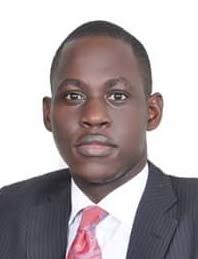By Jonathan Mwesigwa S.
When I last tested Buganda’s Mmengo leadership as regards its political strategy for the beloved ancient Kingdom and that of Uganda—the country whose foundation is walled in the former—I hardly knew that less than two months later, we would be hit by a pandemic in the form of COVID-19—the much-dreaded virus given especially its ravaging effect. (See The Observer of January 15-21, 2020.)
My modest plea which, I think, incited Mr. Mayiga, the Katikkiro, to give me a rather far-flung egoistic lecture on his (in)abilities plus a reminder about my ‘youngness’; envisioned Buganda pursuing a multi-pronged approach in resolving the (B)Uganda Question—which “would, in a major way… assist in the holistic resolution of our challenges, present or futuristic…”
Contextually, one, among others—proposed:
1. Returning to the drawing board and re-imagine both Buganda’s place and role at local, continental and global planes.
2. Establishing an overall section for strategic planning, monitoring and execution of her Five Point Programme within a global sense, and with a think-tank/research unit. The research must be translated and published.
3. Plus spotting and screening young brainy Baganda—both graduates and undergraduates for scholarship, fellowship, leadership and residency programs at world-class schools and organisations.
You may recall that on 5 February 2019 Kabaka Mutebi II hosted President Museveni at his Bbanda Palace over ‘secret talks’—the official version of which was reported by the press.
One wonders, though, why the eleven car consignment of eight Toyota Land Cruisers and three Toyota TX Prados was not declared as part of the deal! The answer, one believes, lies not solely in some fundamental moral failings of the current (mis)leadership at Mmengo, but rather in understanding why it chose to ‘hire’ corruption and yield to Museveni’s apparent politics of patronage—fully knowing (B)Uganda’s objectives of severing his cords of manipulation, exploitation, encirclement and strongman-ness inter alia.
Mmengo will perhaps recall that previously, federal Buganda could afford fleets of classy auto brands like the Rolls Royce, Mercedes Benz, Lincoln, and Bentley.
Sufficient is the defense now, to treat Mr.Mayiga’s ‘obwerufu’ (transparency) chants with a pinch of salt.
Two other immediate outcomes of that ‘visit’ comprised: the ejection from Mmengo’s Cabinet of those officials opposed to her current policy course—several of them senior in rank; and also, the creation of clogged Ministries to be run by yes-men—all under the guise of meriting a small but ‘efficient’ admin.
If the current (mis)administration had an atom of shame they would resign, given especially the eternal negative impact of their actions on (B)Uganda’s cause to free our people from the vestiges of overrule—whether internal or external. Otherwise, they would wholeheartedly embrace effective criticism, devote themselves to that cause to guarantee an unmatched legacy for our much-loved Kabaka.
It now remains to discuss how federalism would have enabled us to combat COVID-19 in a country whose healthcare system is nerve-wracking, yet the prospects of renegotiating our Federo demands in this regard were traded for automobiles and wages for the Katikkiro and members of the Executive Committee!
Federalism would: guarantee Buganda’s right to have a say in the management of today’s global health disaster; stem the one man show that the whole country rather has the misfortune to endure; separately conduct holistic studies or jointly with the central government or other federal provinces or both; build specialized hospitals; share expertise and means; publish their findings/recommendations (both in English and major native tongues)—for instance, on the best health practices to adopt in combating it.
The Lukiiko (Buganda National Assembly) would debate and enact laws unique and relevant to our situation; or review the Kingdom’s health policy to cater for such unforeseen circumstances in the future, especially; or object with alternatives to the policy and legal framework wished-for and/or approved by the national Parliament. Decisions reached, thus, would be more plausible given their consultorial, conciliatory and consensual nature.
Unluckily, today’s Lukiiko, is “…a tame body” and thus can’t be said to comprise “…men of very decided views [who are] not only critical of the Governor of [this time] but [are] also critical of the policy of the Kabaka in not being sufficiently advanced…” as it were in the 1950s.
Federalism would not only expose the faintness of Uganda’s decentralization model but also demonstrate that “The idea that government should be based solely on central institutions is old fashioned and out of date” for “there are different types of…issues, which need different types of institutions to deal with them.”
The last thing, therefore, the people of Buganda would want to hear from the Katikkiro are mixed signals about the prospects of a federal relationship with the rest of Uganda, as well as the scrawny argument that it’s impossible to realize this under the Museveni regime.
Finally, Mmengo ought to know that the salary and car deal is disastrous to Buganda’s reputation, the well-being, will, wishes and aspirations of her people; and to the trifling harmony and unity with fellow Ugandans. She, therefore, not only risks a dogged duel with the rest of Buganda, but the fading into obscurity of her cult, as well—with no sympathies but lots of quiet thanks from its flatter.
The writer is a Lawyer, Researcher and author of a 2013 book, “Federalism: The Most Suitable Form Of Governance for Uganda”
The views expressed by Mr. Mwesigwa or any other of our columnists are their own opinions and not owned by this publication.


